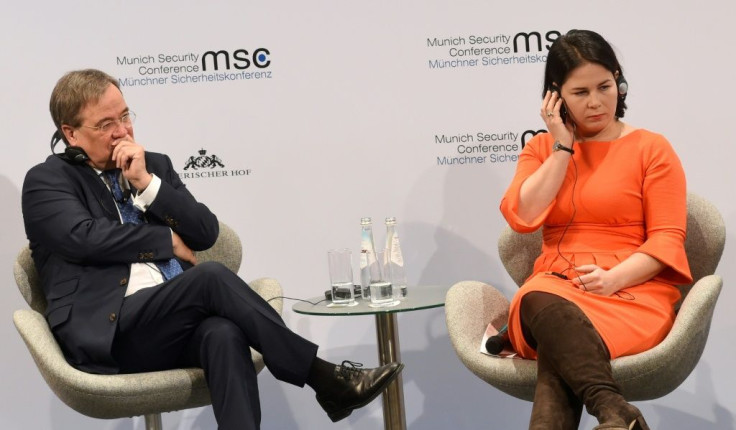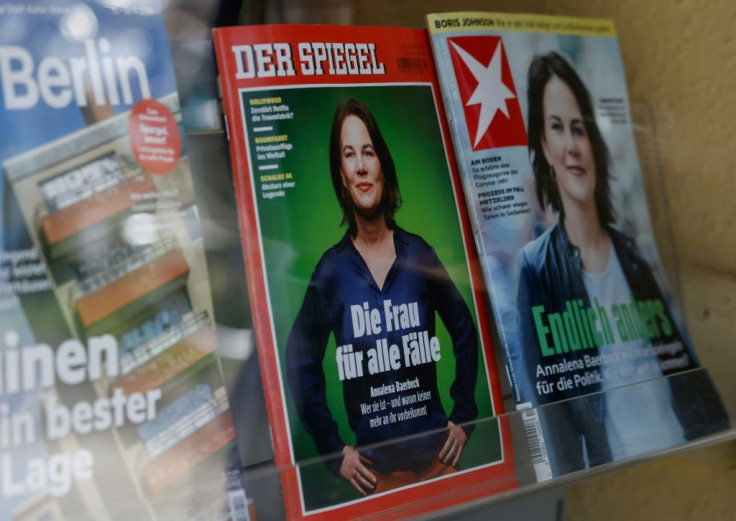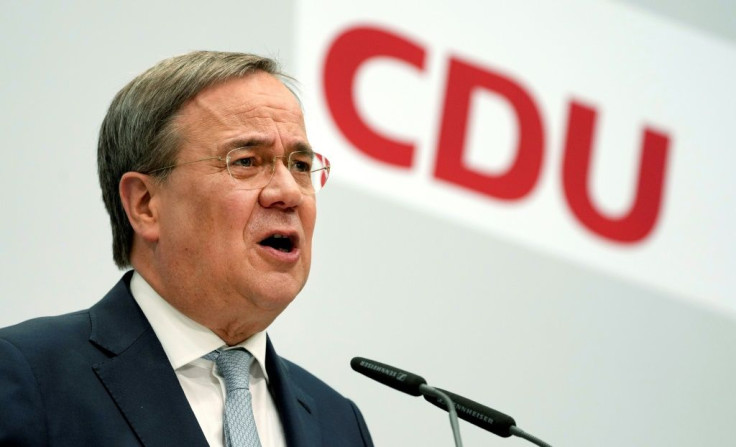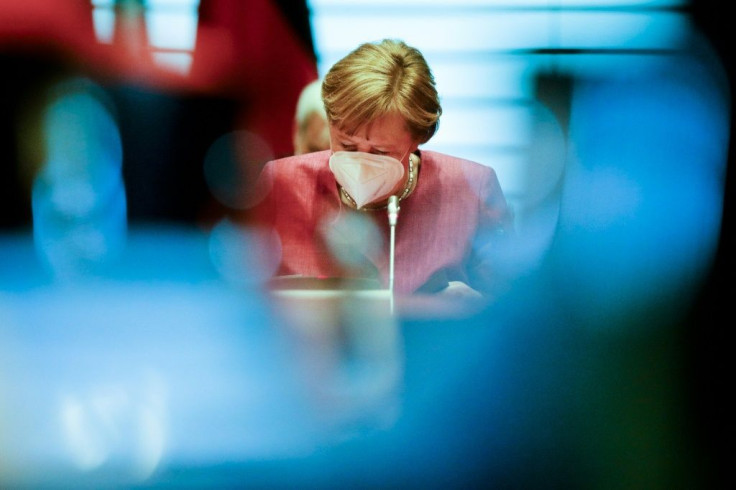Hopefuls For Merkel's Crown Diverge On China, Russia
The two leading candidates to succeed Angela Merkel are presenting a distinct choice about Germany's role in the world, between pragmatic continuity and a more assertive stance, particularly with regard to China and Russia.
Merkel's conservatives with their candidate Armin Laschet, 60, and the Greens' challenger, Annalena Baerbock, 40, are neck-and-neck in the polls four months before a general election that will mark the end of the veteran chancellor's era.
Both have limited experience in global politics.

Laschet was a member of the European Parliament in the early 2000s and now leads Germany's most populous state. Baerbock served as the assistant to a Green MEP from 2005 to 2008 and holds a degree in international law from the London School of Economics.
Both have voiced their alignment with the United States and their commitment to Europe and NATO.
But when it comes to issues concerning major powers China and Russia, the two sharply differ.
Analysts note that while Laschet is largely seen as the continuity candidate likely to keep to Merkel's diplomatic line, Baerbock may well bring a change in tone when it comes to issues surrounding Beijing and Moscow.

Presenting his diplomatic strategy on Wednesday, Laschet called for a pragmatic approach to Russia, which he said could be seen as a "partner" in certain contexts.
"But on the other hand, where international rules are violated, Russia must also be shown where the line is," he said.

He described China as a "partner, competitor and rival", highlighting both "economic relations that are of great relevance to us" and differences when it comes to "human and societal questions".
This stance puts him in line with Merkel, who has always argued that it was possible to find common interests and keep doing business with Russia and China while also voicing differences on issues like human rights.
Merkel has for example stuck by the controversial 10-billion-euro ($11-billion) Nord Stream 2 gas pipeline from Russia to Germany, despite escalating rows with Moscow over issues including its annexation of Crimea or the poisoning of opposition figure Alexei Navalny.
Laschet has said the government "is following the right course" on Nord Stream.

But Baerbock wants the pipeline scrapped, saying it undermines sanctions against Russia and poses an environmental threat.
More generally, in an interview with the Frankfurter Allgemeine daily in April, Baerbock said she was in favour of a "different approach to authoritarian regimes".
"Baerbock takes a clearly critical stance towards autocrats, whether in the Kremlin or in Beijing," Thorsten Benner, director of the Global Public Policy Institute think tank, told AFP.
On China, Laschet would also be broadly expected to keep to the course of Merkel, who was at the forefront of negotiating an investment deal between Beijing and the EU at the end of 2020 and has been ramping up business ties with China for some years.
In an interview with the Frankfurter Allgemeine, Laschet said it was "not acceptable what is happening with Uyghurs in China".
"Nevertheless, we have business relationships, scientific relationships, technological relationships," he added.
Baerbock has come out more strongly over China's treatment of the Uyghur minority.
While she acknowledged that "it's not human rights on one side and economic interests on this side", she said Europe can decline to purchase any goods made in regions where violations are being committed, for instance in Xinjiang.
She charged in April that the EU had "not sufficiently addressed the issue of forced labour in relation to the oppressed Uyghur minority" in relation to the EU-China investment deal.
Rights groups say up to one million Uyghurs and people from other mostly Muslim groups are detained in internment camps in the northwest Xinjiang region of China.
Baerbock has also warned against Chinese tech companies such as Huawei harvesting data in Europe.
Giving a hint of how she planned to push through her stance against international players, Baerbock said in an interview with media group RND: "It's not enough to bang on the table.
"One needs a clear position, and one's own compass, in order to fully exploit the entire spectrum of diplomacy -- dialogue, incentives and toughness."
© Copyright AFP {{Year}}. All rights reserved.





















